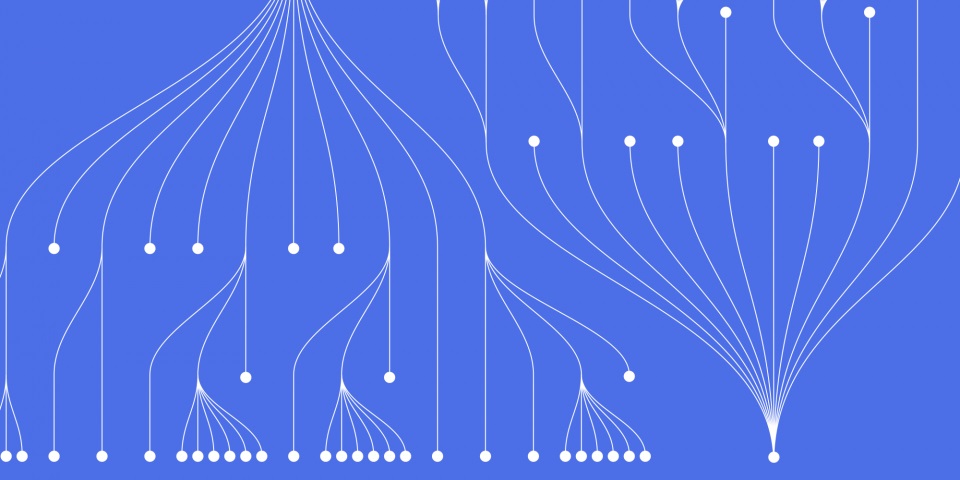
19 April 2023
Pointers are a fundamental concept in C++ programming, and they allow programmers to manipulate memory and create dynamic data structures. However, they can also be a source of confusion and errors, especially for beginners. In this guide, we'll provide a comprehensive overview of pointers in C++, explain how they work, and show you how to use them correctly. We'll also cover some common mistakes and pitfalls to avoid when working with pointers.
In C++, a pointer is a variable that stores the memory address of another variable. This allows programmers to create indirect references to memory locations and manipulate them directly. Pointers are typically used to create dynamic data structures, such as arrays, linked lists, and trees, that can grow or shrink at runtime.
In C++, pointers are declared using the * symbol. For example, to declare a pointer to an integer variable, we would use the following syntax:
int *ptr;
This declares a pointer named ptr that points to an integer variable. We can then assign the address of an integer variable to ptr using the address-of operator &:
int var = 42; int *ptr = &var;
This assigns the address of the var variable to ptr.
Once we have declared a pointer and assigned it an address, we can use it to manipulate the variable it points to. The most common use of pointers is to dereference them using the * operator, which retrieves the value stored at the memory address pointed to by the pointer. For example:
int var = 42; int *ptr = &var; std::cout << "Value of var: " << var << std::endl; // Output: Value of var: 42 std::cout << "Value of *ptr: " << *ptr << std::endl; // Output: Value of *ptr: 42
In this example, we first print the value of the var variable using the variable name. We then print the value of *ptr, which is the value stored at the memory address pointed to by ptr.
We can also use pointers to modify the value of the variable they point to. For example:
int var = 42; int *ptr = &var; *ptr = 24; std::cout << "Value of var: " << var << std::endl; // Output: Value of var: 24 std::cout << "Value of *ptr: " << *ptr << std::endl; // Output: Value of *ptr: 24
In this example, we first assign the address of the var variable to ptr. We then use *ptr to modify the value of var to 24.
One of the most common mistakes when working with pointers is to dereference an uninitialized or null pointer. This can result in a segmentation fault or other memory-related errors. To avoid this, always make sure to initialize pointers to a valid memory address or set them to null if they are not pointing to anything:
int *ptr = nullptr; // Initialize to null
Another common mistake is to use an invalid memory address or pointer arithmetic that goes out of bounds. This can lead to unpredictable behavior or even security vulnerabilities. Always make sure to verify that a pointer is pointing to a valid memory address before dereferencing it, and use appropriate bounds checking
techniques to prevent out-of-bounds errors. For example, the standard library provides the std::vector and std::array containers that automatically manage memory allocation and bounds checking for you.
Memory leaks are another common issue when working with pointers. This occurs when memory is allocated dynamically using new or malloc, but not released using delete or free when it is no longer needed. Over time, this can cause your program to consume large amounts of memory and even crash. To avoid memory leaks, always make sure to release dynamically allocated memory when you are done with it:
int* ptr = new int; // Allocate memory // Use ptr delete ptr; // Release memory
Finally, be aware of the difference between pointer assignment and value assignment. When you assign one pointer to another, you are copying the memory address, not the value pointed to by the pointer. For example:
int var1 = 42; int var2 = 24; int* ptr1 = &var1; int* ptr2 = &var2; ptr1 = ptr2; // Copies the address of var2 to ptr1 std::cout << *ptr1 << std::endl; // Output: 24 std::cout << *ptr2 << std::endl; // Output: 24
In this example, we assign the address of var2 to ptr1, which causes it to point to var2 instead of var1.
Pointers are a powerful tool in C++ programming, but they require careful use and understanding to avoid common mistakes and errors. By following the best practices outlined in this guide, you can use pointers effectively and safely in your programs. Remember to always initialize and verify your pointers, use appropriate bounds checking, and release dynamically allocated memory when you are done with it. With these techniques, you can make the most of the power of pointers in C++!
JBI Training offers a number of courses to get you started in C++ or to advanced your knowledge. Our Training courses are taught by expert instructors.
The below documentation provides more in-depth information about the function, including its parameters, return value, and examples of how to use it in different contexts. It is always a good idea to consult official documentation when working with any programming language or library, as it can provide valuable insights and ensure that you are using the function correctly.
C++ Programming Tutorials: This website provides a comprehensive set of tutorials for learning C++, covering topics such as variables, data types, control structures, functions, classes, and more. Each tutorial includes code examples and explanations, making it easy to follow along and learn at your own pace. https://www.tutorialspoint.com/cplusplus/index.htm
C++ Standard Library: The C++ Standard Library is a collection of functions and classes that provide essential functionality for C++ programming. This website provides documentation and examples of how to use the various components of the library, including containers, algorithms, iterators, streams, and more. https://en.cppreference.com/w/cpp
C++ FAQ: The C++ FAQ is a comprehensive resource for answering common questions and issues that arise when working with C++. The website covers a wide range of topics, including language features, programming techniques, performance optimization, and more. https://www.parashift.com/c++-faq/
C++ Concurrency: C++ Concurrency is a library that provides tools and techniques for working with concurrent programming in C++. This website provides documentation and examples of how to use the library, including threading, synchronization, futures, and more. https://en.cppreference.com/w/cpp/thread
C++17: The C++17 standard introduces several new language features and improvements, such as structured bindings, constexpr if, and more. This website provides an overview of the new features and how to use them. https://en.cppreference.com/w/cpp/17

CONTACT
+44 (0)20 8446 7555
Copyright © 2025 JBI Training. All Rights Reserved.
JB International Training Ltd - Company Registration Number: 08458005
Registered Address: Wohl Enterprise Hub, 2B Redbourne Avenue, London, N3 2BS
Modern Slavery Statement & Corporate Policies | Terms & Conditions | Contact Us
POPULAR
AI training courses CoPilot training course
Threat modelling training course Python for data analysts training course
Power BI training course Machine Learning training course
Spring Boot Microservices training course Terraform training course